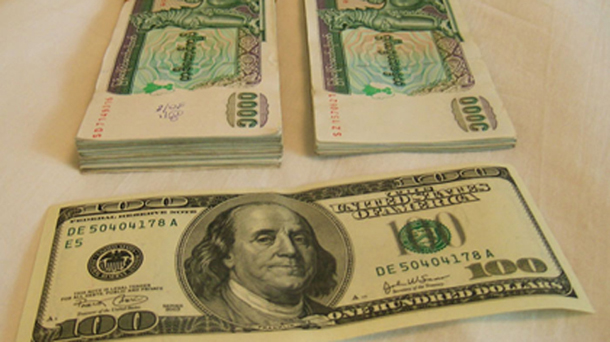RANGOON — Local businesses are hoping for more foreign investment in Burma, after the Export and Import Bank of the United States (Ex-Im Bank) began offering credit for trade with the country last week.
US businesses are considering their options in Burma, after staying away for over a decade due to economic sanctions imposed on the previous military junta by the US government. Similar sanctions were imposed by Europe under the junta, and as a result Burmese traders largely dealt with Singaporean banks for export and import products.
After a quasi-civilian government came to power in Burma nearly three years ago, US President Barack Obama suspended most sanctions in 2012. He has since waived restrictions on the provision of financial services, while also authorizing new investments by Americans and permitting the importation of all products from Burma except jadeite and rubies.
“The Export-Import Bank is sending a strong signal that we are committed to strengthening economic ties with Burma as the nation continues its transition,” Ex-Im Bank board chairman and president Fred Hochberg said in a statement last week on Thursday, announcing that the bank was beginning to provide export-credit insurance, loan guarantees and direct loans for creditworthy export sales to Burma.
“After a diligent review, the Bank’s Board reached this decision—which will improve trade flows between our two countries and help reintegrate Burma into the global economy,” he said, adding that the decision would also create a new market for US exports and support American jobs.
The bank will provide similar terms as credit agencies from European and Asian countries, whose governments have gone even further in ending barriers to trade with Burma over the past three years. While the United States has suspended most sanctions against Burma, the European Union last year decided to lift all sanctions other than an arms embargo.
Burmese businesses hope the decision by the US government’s official credit agency will encourage more American investment in the country and, assuming the Burma government allows for it, the engagement of private US banks.
Burma’s central bank currently prohibits private foreign banks from operating in the country, much to the disappointment of businesses that would prefer these banks’ interest rates, which are better than the rates at local banks.
But the central bank may be looking to ease its policy, says Maung Maung Lay, vice chairman of the Union of Myanmar Federation of Chambers of Commerce and Industry (UMFCCI). Foreign banks have opened representative offices in the country over the past year, and the central bank is now considering whether to allow them to open branch offices, he says.
“I expect it may allow joint ventures with local banks,” he told The Irrawaddy.
Last year the central bank pledged to allow some foreign banks to begin offering limited financial services this year. Thirty-four international banks have opened representative offices in the country, but they have thus far been forbidden from opening branches or offering services other than advising clients.
Maung Maung Lay expressed hope that the US Ex-Im Bank’s decision last week would lead to easier access to credit for local Burmese businesses.
“The problem is that money transfers still don’t work, meaning foreign traders or companies cannot transfer money to Burma. This is because in the data systems of US banks, Burma remains on the list of countries where sanctions have been suspended, not lifted,” he said. “In practice it’s hard to deal with US banks for trading, so this should make it easier.”
He said foreign direct investment might also rise, with investors more likely to trust credit from the United States. “The US Ex-Im Bank can offer credit to US exporters to invest in Burma. It’s the beginning of their time to invest here,” he said.
Foreign investors are considering their options in Burma’s largely untapped consumer market. The country boasts plenty of natural resources, including gas and oil, and a strategic location bordering China and India. However, experts predict that investors will likely remain cautious this year, as the country’s political situation remains far from certain ahead of the 2015 elections.
Myat Thin Aung, chairman of the Hlaing Tharyar Industrial Zone near Rangoon, said he was optimistic that more private US banks would consider doing business in Burma now that the US government has started offering credit.
“US banks offer interests rates at only 5 percent. Here, local banks offer rates of 13 percent,” he said. “In the past some businesspeople took credit from US banks and saved it in local banks, so they could make money. US banks offer fast services, and if they can lend to the local manufacturing sector then development will progress more quickly.
“I doubt US heavy industries will come to invest here because we still lack regular electricity, but perhaps more small and medium enterprises will come if the US Ex-Im bank supports them.”
He urged local private banks to prepare for competition with foreign banks in the future.
Foreign direct investment has risen since Burma passed its foreign investment law in 2012 and Western countries began lifting or suspending sanctions. According to the most recent figures available, the first six months of the 2013-14 fiscal year—beginning April 1—saw the government approve projects worth more than US$1.8 billion. That compares with just $1.4 billion of FDI for the whole of the 2012-13 fiscal year.

















